COP26: University of East Anglia students give their views
- Published
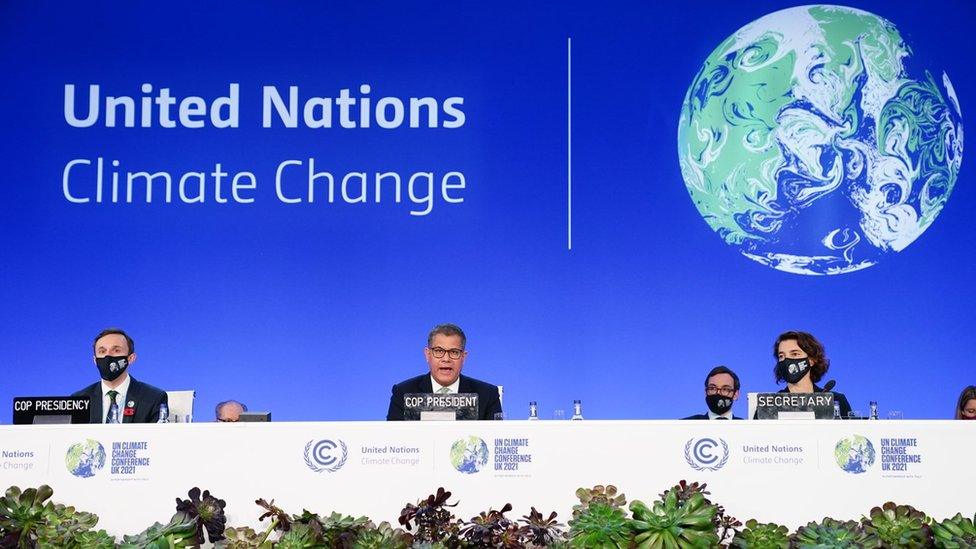
The two-week COP26 summit in Glasgow ended on Saturday
Pledges to reduce the use of coal and increase financial support for developing countries were part of the deal struck at the end of COP26. What do student activists think of the agreement that came out of the two-week climate change summit in Glasgow?
'I expected empty promises but not wilful ignorance'
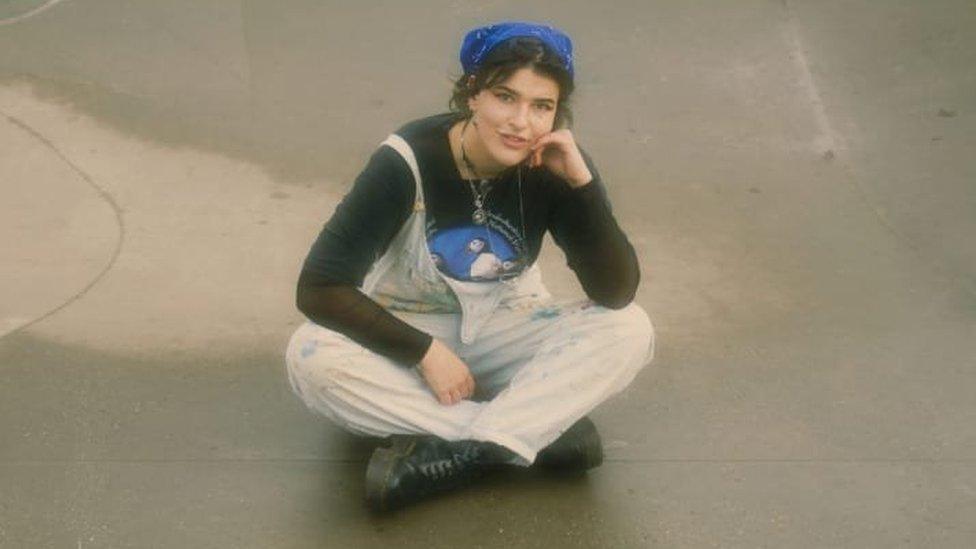
Meg Watts says the deal that came out of COP26 was a "rehashing" of the Paris Agreement
"Nothing new" has come out of the negotiations in Glasgow, according to University of East Anglia (UEA) student Meg Watts.
"I feel very strongly that it was a rehashing and watering down of the Paris Agreement," she says, referring to the 2015 international treaty on climate change.
The 21-year-old literature and creative writing student says before attending the summit, she was hoping it was going to be "worth everyone's time" and there was going to be a green new deal that focussed on radically reducing reliance on fossil fuels.
"But as soon as I arrived in Glasgow, it was clear that was not going to happen," she says.
She says even though the Glasgow Climate Pact agrees to "phase down" coal, there was no mention of other fossil fuels such as oil and gas, and the pledges, if met, would only limit global warming to 2.4C, which amounts to "catastrophic climate change".
"We're seeing 1.5 degrees and the floods in New York and in Germany, and in the Philippines, and and it's only going to get worse if there is no decisive action," she says.
For her, the only positive to come out of COP26 was collaboration between China and the US, the world's two biggest CO2 emitters, who pledged to work together to achieve the 1.5C temperature goal set out in the Paris Agreement.
Otherwise, it was "worse than I expected", she says, adding: "I expected empty promises, but I didn't expect wilful ignorance."

'These two weeks are not going to save the world'
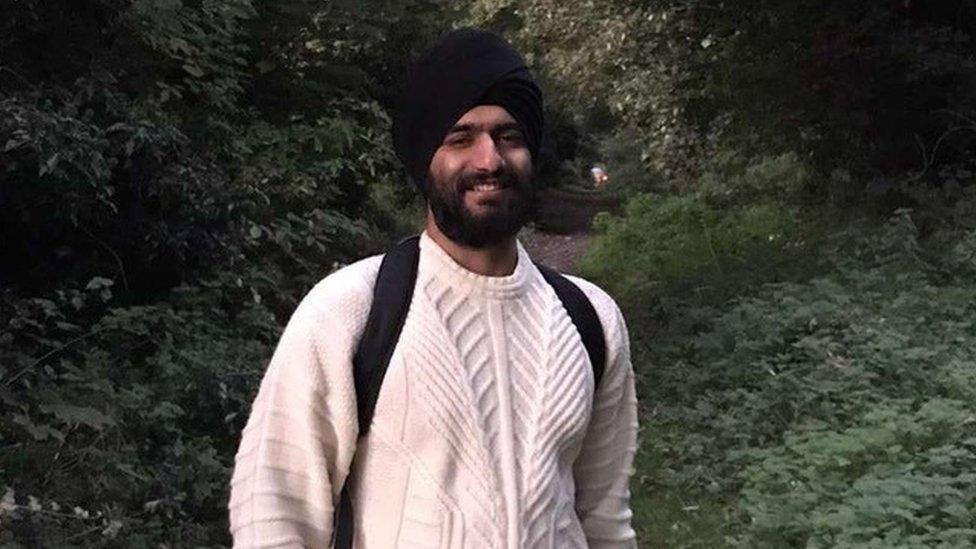
Amit Singh is "disappointed" with the negotiations that have come out of COP26
The Glasgow Climate Pact is the first ever climate deal to explicitly plan to reduce coal, the worst fossil fuel for greenhouse gases.
It also presses for more urgent emission cuts and promises more money for developing countries to help them adapt to climate impacts.
UEA medical student Amit Singh, chair of the national committee COP26 working group for Students for Global Health. says he is "disappointed" with the agreement, reached after COP26 went into overtime on Saturday.
The 20-year-old, who attended the conference, says even though getting fossil fuels mentioned for the first time was a "great win", he is disappointed that the agreement was to "phase down" rather than "phase out" coal.
The wording change was made after a late intervention by China and India.
"It's a significant difference and means people can keep using coal," he says.
"India and China have had a lot of backlash and they have done a massive disservice but there are people running the show in the background who are getting away with so, so much."
Mr Singh says he is also disappointed that, after resistance from the United States, the European Union and some other rich nations, the deal failed to secure the establishment of a dedicated new damages fund to support the rising costs of losses and damage in developing countries.
He is, however, "proud" to help get human health recognised as a "big factor" and for fossil fuels to be mentioned for the first time.
"These two weeks are not going to save the world. We can continue to make changes and to hold fossil fuel companies to account," he adds.

'Governments have to act now'
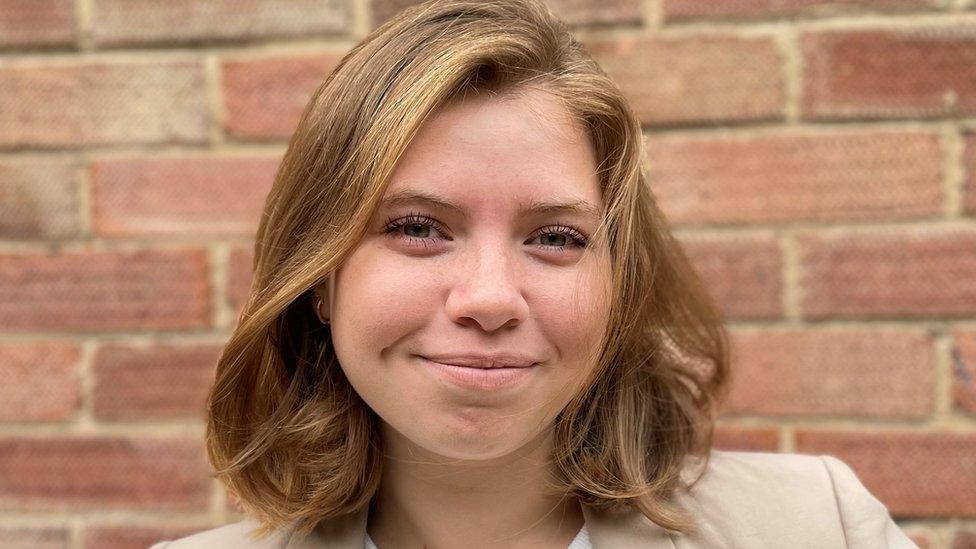
Ekaterina Dudakova says COP26 was a demonstration of the "world's biggest act of greenwashing and speculation"
Like Miss Watts and Mr Singh, Ekaterina Dudakova is also concerned the pledges do not go far enough to limit temperature rise to 1.5C.
The 21-year-old UEA student says: "The fact that we are receiving reports from scientists which are warning us that if we stick to the promises made at this year's COP, we are going to have a 2.4C rise by 2030, instead of promised 1.5, already speaks a lot about what COP26 has meant for the planet."
Like Mr Singh, she agrees it is "reassuring" to see specific mentions of fossil fuels in the agreement, but is dismayed at the use of "phase down" rather than "phase out".
The organiser of UEA COP26 Festival is also concerned that there is no proper plan for loss and damage.
The third-year English Literature and Drama student says, in her opinion, the COP26 negotiations were a demonstration of the "world's biggest act of greenwashing and speculation".
"COP should not be a field of vanity fair for politicians and corporations," she says.
"If the governments do actually care about people they are representing, they have to prove us that and act now."

What was agreed at COP26?
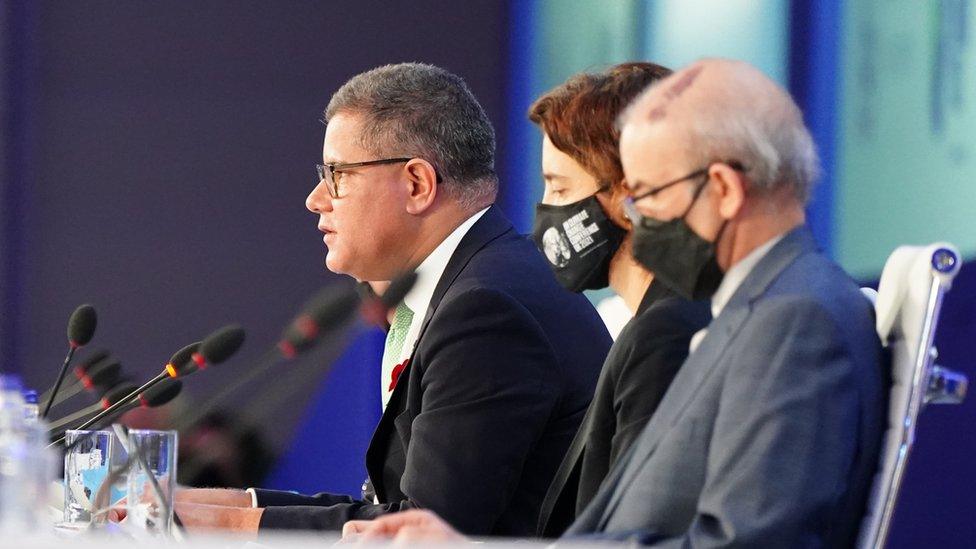
As part of the agreement struck in Glasgow, countries will meet next year to pledge further major carbon cuts with the aim of reaching the 1.5C goal.
Under the Glasgow climate pact:
Countries were asked to republish their climate action plans by the end of next year, with more ambitious emissions reduction targets for 2030
There is an emphasis on the need for developed countries to increase the money they give to those already suffering the effects of climate change - beyond the current $100bn annual target
The language about coal has been included for the first time ever in a global climate deal
A pledge in a previous draft to "phase out" coal was instead watered down to a commitment to "phase down" coal

Find BBC News: East of England on Facebook, external, Instagram, external and Twitter, external. If you have a story suggestion email eastofenglandnews@bbc.co.uk, external